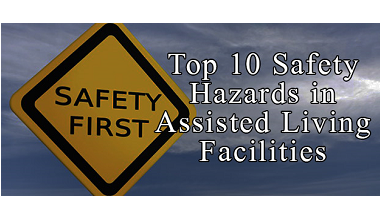 From melancholy to jubilation, more than any other Jewish holiday, Passover embodies the entire human experience. On one hand, we are reminded of four hundred years of bitter slavery our ancestors suffered at the hands of the Egyptians. Simultaneously, we rejoice in our freedom and journey to the promised land.
From melancholy to jubilation, more than any other Jewish holiday, Passover embodies the entire human experience. On one hand, we are reminded of four hundred years of bitter slavery our ancestors suffered at the hands of the Egyptians. Simultaneously, we rejoice in our freedom and journey to the promised land.
It is custom during the Seder (Passover dinner) for the youngest child to read the infamous Four Questions, which starts by asking, “why is this night different from all other nights?”. For eight days, we eat matzah over bread, recline in our chairs rather than sit erect, and eat bitter herbs to remind us of the tears shed in bondage. Yes, Passover is always that time of the year that feels, uh, well… different. But we can all agree this year feels especially unusual, from self-quarantine, to masks and gloves, to the entire world in social isolation.
For me personally, it’s no coincidence Passover fell just several months after the pandemic commenced. There are too many similarities to Egypt 3,500 year ago, after all, Covid-19 is a modern-day plague! At my family’s Seder this year, we wanted to dive in deeper and apply the lessons of this special holiday to our own lives in 2020. So, we revised the infamous 4 Questions in relation to coronavirus.
Below are the Four Passover Coronavirus Questions. I’ve provided my own answers, deeply expressed from my heart. What are your answers? I hope you enjoy!
What Have You Enjoyed During Coronavirus?
I am not a utilitarian. I do not believe this terrible virus, which is going to kill hundreds of thousands of people, happened for some greater good. Nonetheless, it’s important to look for the silver lining in all bad things that happen in life.
If I had to pinpoint what I have enjoyed most during coronavirus it would simply be the world dramatically slowing down. Society normally moves at such a fast pace that I often fail to stop and appreciate the stillness of the moment. The next vacation, the next ball game, the next new restaurant to try, the next thing I am going to buy. Habitually these are the questions I ask myself. But now, forced into self-isolation, I have nowhere to be, nobody to see, and nothing to plan except for the next home cooked meal. Chicken piccata with risotto, or grilled eggplant over quinoa…hmmm? And what about tomorrow, I guess I should finally organize the unpacked boxes in the basement from when I first moved in. Nothing but guiltless free-time on my hands…
What Have You Learned During Coronavirus?
With so many valuable lessons during coronavirus, it can be hard to choose one specifically. However, after much consideration, the main thing I have come to know is at any given moment the simplest, most unobserved things in life can be taken away, and furthermore, outside of our control. Little things, like having guests over for a barbeque, playing basketball at the gym, going to the mall, or even giving a hug to a friend, are now forbidden, deemed too risky towards the spread of coronavirus.
This concept of appreciating little things in life relates to Passover, as the Israelites were forced to leave Egypt absent of enough time to let their bread rise, and thus Matzah came to be. For eight days, Jews are forbidden to eat bread. This might be a very little change in life, but for most, bread is a staple of everyday life. The little things, those that go unnoticed, when taken away, become big things!
What Did You Enter Coronavirus with that You are Leaving Behind?
This perhaps might be the most important question. It is definitely the question most relatable to Passover. Before giving my personal answer, I’ll explain why…
Passover is a story about exodus. That’s why the chapter in the Torah (Old Testament) where Passover takes place is named Exodus. To clarify, when the Israelites left Egypt, they told Pharaoh they were simply going into the desert to practice their religion and would return to Egypt afterwards. When Pharaoh realized his slaves tricked him and were trying to escape, he took his entire army and chased them all the way to the banks of the Red Sea.
As Moses stood on the banks of the Red Sea with the Egyptian army surrounding the entire nation of Israel, he looked up to God for help, fearing he had led his people to certain death. God then looked down upon Moses and said, “Tell the Israelites to travel on”. Moses then put his staff into water and the sea split. What is so interesting is that God didn’t say “I will save you” or “believe in my miracles”. By telling the Israelites to travel on, the message God is trying to relay is that whenever you are trying to leave something toxic or tough in your life, whatever your exodus may be, then don’t sit and cry for help, but rather if you keep taking the necessary steps to move forward then God will open the doors in your life too, like he did for the Israelites at the Red Sea.
For me personally, my exodus is leaving behind addiction. For years I have struggled to get a full grip on my love and hate affair with alcohol and marijuana. I’ll go one, two, three, four months, even a half year completely sober, and then something will happen causing me to come back. I always regret it! It really is just an excuse. The reality is that I can do all the same things I love to do, and even more, without substances in my life. I will always be an addict, that will never change. I actually like it about myself! It’s why I become so passionate about guitar and movies and working out. But I know now, while sitting in social isolation, and plenty of time to think about the person I truly want to be, that I have always been strong enough to not act on my addiction towards substances. I entered coronavirus doing that dance, stopping and starting with marijuana and alcohol, but am saying goodbye now, this time for good. For my son, my family, and myself!
What Are You Most Looking Forward to After Coronavirus is Over?
When the Israelites crossed over the Red Sea and went to Mount Sinai, God swore they would be given the promised land, Israel. However, it took 40 years for the Israelites to travel from Mount Sinai until they finally entered the land of Israel, through Jericho.
Why did it take so long? There are two main reasons. First, at Mount Sinai the Israelites were given new laws to follow, the Torah. They did not have these same laws while slaves in Egypt, so God knew they needed time to readjust and learn this new way of life. Secondly, God did not allow a single person who was a slave in Egypt to enter the promised land, only their descendants. He did not want the slave mentality to carry over. The Israelites had to wait for the slave generation to die. They had to have a fresh start!
So how does the promised land relate to today’s world in 2020? The promised land was such an important concept in the minds of the Israelites while wandering in the desert for 40 years because it gave them hope. Promised land… it has a ring to it! We all need something to look forward to during tough times, to help us push through. For me, the number one thing I am looking forward to after coronavirus is over is taking my son back to the Jewish Community Center (JCC). My son had swim lessons every Wednesday with several of his buddies, and before the lesson we would play basketball for an hour in the gym, just him and I. After swim lessons we would dip our toes in the hot tub and hang out for a bit, before going home for dinner. Every week we looked forward to that two hours together. I love going to the gym, but I love it even more when I get to spend that time with my son; teaching him the path to happiness starts in the gym, through our breath.
Today is April 18th, how long will it take until we can go to the movie theater again, a sports game, the mall, or the gym? Nobody really knows! What’s important is that like the Israelites wandering in the desert for 40 years, we find our own personal exodus, the toxic things we are going to leave behind, so we can enter the promised land, post coronavirus, as the best possible version of ourselves.
Written by Alex Milzer with Senior Directory


Comments